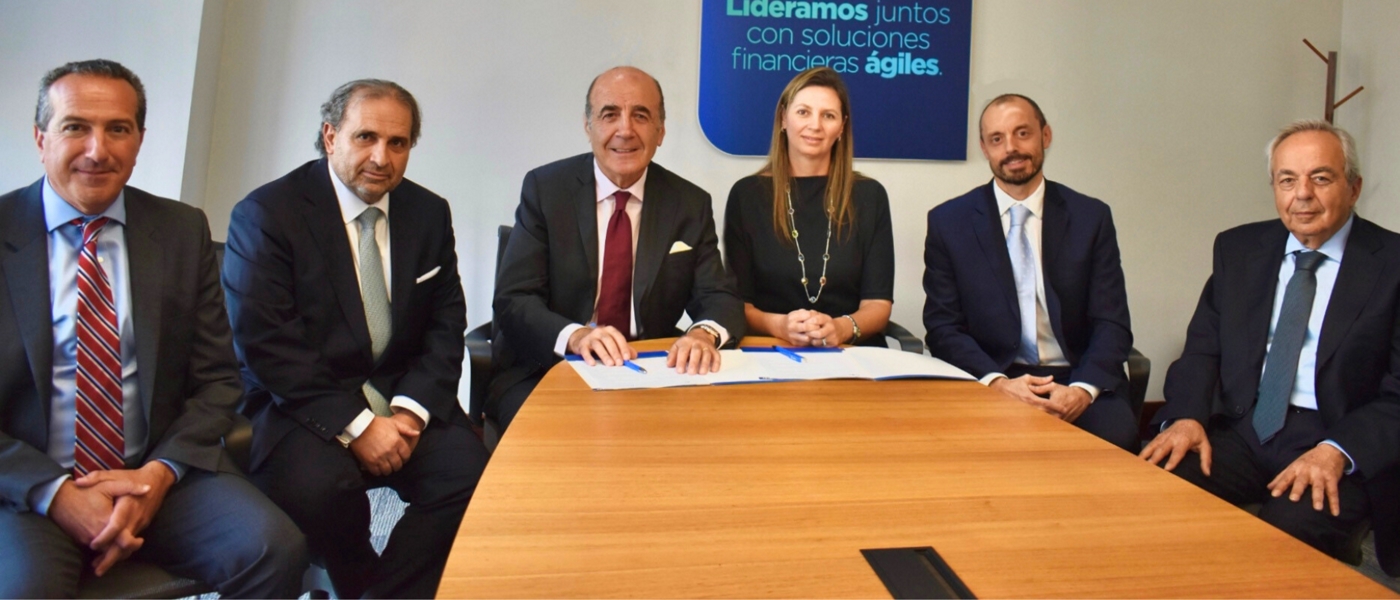1. Anti-bribery policy statement
1.1. Bribery is both a criminal offence and bad business. Not only can individuals be guilty of an offence, but a company can be prosecuted if it fails to prevent bribery, whether in the UK or overseas.
1.2. Without exception, the SFDRC acts with integrity in all of its dealings and strictly prohibits bribery and corruption in any form.
1.3. The SFDRC commits itself to:
- 1.3.1. conducting its business fairly, honestly, accountably and transparently;
- 1.3.2. not making, offering or accepting inducements or bribes, whether directly or indirectly, to gain business advantages or for any other purposes;
- 1.3.3. not using a third party as a conduit, whether directly or indirectly, to channel bribes or other inducements to others; and
- 1.3.4. developing a programme to implement and support these principles.
1.4. These are the values by which the SFDRC expects its staff to carry out its work on its behalf.
2. Who does this policy apply to?
2.1. Anyone who carries out work on behalf of the SFDRC must abide by these rules, including:
- 2.1.1. Trustees, SFDRC members, senior staff and other employees;
- 2.1.2. Advisory Council members;
- 2.1.3. consultants;
- 2.1.4. secondees; and
- 2.1.5. agency staff and casual workers or locum staff brought in to cover absent staff.
3. The meaning of bribery
3.1. Bribery is a reward or an inducement, financial or otherwise, offered, promised or provided to improperly gain personal, commercial, regulatory or contractual advantage.
3.2. It is unacceptable for any individuals referred to under paragraph 2 to:
- 3.2.1. give, promise to give, or offer a payment, gift, hospitality or other financial advantage with the expectation or hope that a business advantage will be received, or to reward a business advantage already given;
- 3.2.2. give, promise to give or offer a payment, gift, hospitality or other financial advantage to a government official, agent or representative to ‘facilitate’ or expedite a routine procedure;
- 3.2.3. accept or solicit payment, gift, hospitality or any other financial advantage from a third party, which the individual knows or suspects is offered with the expectation that it will obtain a business advantage for the third party;
- 3.2.4. accept a payment, gift, hospitality or any other financial advantage from a third party, if the individual knows or suspects that it is offered or provided with an expectation that a business advantage will be provided by the SFDRC in return;
- 3.2.5. retaliate against or threaten a person who has refused to commit a bribery offence or who has raised concerns under this policy;
- 3.2.6. do something that is improper, illegal or a breach of trust in the course of working or doing business; and/or
- 3.2.7. engage in any other activity that is in breach of this policy.
3.3. Bribery and corruption are criminal offences in most countries where we do business. Businesses operating in the United Kingdom, including this one, are subject to the Bribery Act 2010. Under the Bribery Act 2010, ‘bribery’ is widely defined, and it is illegal:
- 3.3.1. to pay or offer to pay a bribe;
- 3.3.2. to receive or agree to receive a bribe;
- 3.3.3. to bribe a foreign public official.
3.4. A commercial organisation can also commit an offence if a person associated with it bribes another and does so with the intention of obtaining or retaining business or a business advantage for the organisation.
3.5. It does not matter whether the bribery or corruption occurs in the UK or abroad. An act of bribery or corruption committed abroad may well result in a prosecution in the UK and/or the US, which has similar legislation. Nor does it matter whether the act is done directly or indirectly.
3.6. The timing of the bribe is irrelevant, and payments made after the relevant event will still be caught, as will bribes that are given or received unknowingly.
3.7. It is not necessary for the individual or organisation to actually receive any benefit as a result of the bribe.
4. Why do we adopt this policy?
4.1. As a unique, private organisation, which is required to be both publicly accountable and transparent in all of its work, the SFDRC is committed to following the principles of integrity, transparency and accountability.
4.2. A key part of corporate integrity is complying with all applicable rules.
4.3. The SFDRC is directly affected by, and subject to, the Bribery Act 2010. This legislation imposes strict legal rules on the SFDRC’s work and trading with which it must comply.
5. What happens if the policy is violated?
5.1. The SFDRC staff can be responsible for acts of corruption and bribery committed on its behalf, anywhere in the world, even without the SFDRC’s knowledge.
- 5.2. The SFDRC expects all individuals covered by this policy to do the following:
- 5.2.1. ensure that they read, understand and comply with this policy;
- 5.2.2. sign the declaration that confirms the above; and
- 5.2.3. raise concerns as soon as possible if they believe or suspect that a conflict with this policy has occurred, or may occur, in the future.
5.3. Any violation of this policy by an individual acting on the SFDRC’s behalf may result in disciplinary action up to and including summary dismissal for gross misconduct and/or termination of the business relationship.
5.4. In addition, staff and Trustees should note that the penalties for violating the relevant legislation against bribery and corruption are both civil and criminal, and include fines and imprisonment for individuals. The penalties for the SFDRC may include unlimited fines and significant reputational damage.
6. Responsibility for implementation and monitoring
6.1. Within the SFDRC, the responsibility to control the risk of bribery and any other corruption occurring resides at all levels of personnel. It does not rest solely with one manager, or within a single department.
6.2. If any individual has concerns or questions arising from this policy, it can be addressed to any of the directors in the SFDRC or the SFDRC Chair, the Vice-Chair or the Executive Director.
7. The SFDRC’s anti-bribery principles
7.1. The SFDRC expects all those who are obliged to follow these rules to abide by the principles set out below:
- 7.1.1. to carry out our business honestly, accountably, transparently and with integrity;
- 7.1.2. to not pay or offer to pay bribes or inducements of any nature, nor to condone the offering of bribes or inducements on our behalf to any third party and, in particular, to public officials, to gain or seek to gain new business or a business advantage.;
- 7.1.3. to not accept bribes or inducements, and nor will we agree to them being accepted on our behalf in order to influence our work;
- 7.1.4. if a Trustee or member of staff becomes aware that any appointed adviser, or business associate, has violated this policy, they should immediately inform the Executive Director or Head of Legal and Compliance. The SFDRC will immediately terminate its relationship with that individual or organisation. It will not be associated with any person or organisation that may harm our reputation;
- 7.1.5. to set out the SFDRC’s processes for avoiding direct or indirect corruption and bribery and abiding by and supporting its values;
- 7.1.6. the staff will safeguard the organisation and its resources for which they are responsible, and will keep clear and updated records, including reporting and maintaining records of any gifts, corporate hospitality and donations received and given;
- 7.1.7. to make sure that everyone working for the SFDRC knows and understands its policies and the principles; and
- 7.1.8. to regularly review and update these rules and the procedures that are relevant to their implementation.
7.2. Reporting suspected violations of this policy under paragraph 7.1.4 may be done anonymously, though this policy encourages staff to put their name to their allegation whenever possible. Concerns expressed anonymously are much less powerful but will be considered at the discretion of the SFDRC. In exercising this discretion, the factors to be taken into account would include:
- 7.2.1. the seriousness of the issues raised;
- 7.2.2. the credibility of the concern; and
- 7.2.3. the likelihood of confirming the allegation from attributable sources.
8. Compliance is mandatory
8.1. The SFDRC will always ensure that no employee will suffer dismissal, demotion or any other penalty or adverse consequence for refusing to engage in, or for reporting, questionable conduct. This is true, even if the SFDRC may suffer as a consequence.
8.2. The SFDRC insists on the strict compliance with this policy by all staff and others to whom this policy applies.
9. Facilitation payments
9.1. Many countries do not make a distinction between facilitation payments and bribery. Facilitation payments are small payments made directly or indirectly to secure or speed up the performance of a routine action or to avoid bureaucratic delays, for example, the issuing of permits by public officials or for goods to clear customs.
9.2. The SFDRC will not tolerate facilitation payments, because they are illegal.
Gifts and Hospitality Policy
10. Gifts and hospitality policy statement
10.1. Because bribes and inducements can sometimes be disguised as gifts, or gifts can sometimes be misinterpreted as bribes, the SFDRC must ensure that giving or receiving gifts cannot distort its business relationships, create a conflict of interest or be otherwise construed as an inducement. A conflict of interest may also arise by the giving or receiving of favours or special treatment to which no financial value can be attached. Such special treatments generally encourage a ‘payback’ expectation and can distort a professional relationship.
10.2. This policy is not meant to change the requirements of our policy relating to Speaking Requests: Honoraria and Fees as set out on the intranet.
10.3. This policy makes it clear that:
- 10.3.1. Staff should not accept gifts or any other consideration of a value greater than £100 from any person having business with the SFDRC without having first obtained the permission of the Executive Director. Discretion should always be exercised in accepting hospitality. Excessively generous hospitality, however innocently offered, is always liable to misinterpretation.
- 10.3.2. Sample tokens of modest value bearing the name or insignia of the organisation giving them (for example, pens, diaries or calendars), whether given personally, or received in the post, may be retained unless they could be regarded as an inducement or reward.
- 10.3.3. If staff are invited to attend a meeting, present a speech or submit a written article, all speaking fees, article fees and honoraria should be paid over to the SFDRC.
- 10.3.4. If staff are invited to speak or attend a commercial conference that has been organised for profit, they must seek their line manager’s prior agreement and comply with the relevant provisions of the policy relating to Speaking Requests: Honoraria and Fees.
- 10.3.5. Please note sub-paragraphs 10.3.1 to 10.3.4 above also apply to Trustees.
10.4. The Foundation also considers the following to be inappropriate (the list is not exhaustive):
- 10.4.1. any gift or hospitality given or received in secret;
- 10.4.2. any gift that is in cash, cash equivalent or securities;
- 10.4.3. gifts or hospitality offered where there is an expectation that the business relationship will be influenced or in exchange for something in return (quid pro quo)
- 10.4.4. any gift or hospitality given at a time when the Foundation and the other party is negotiating a contract or are in a related vendor selection process
- 10.4.5. any pattern of giving frequent gifts or hospitality, even if of nominal value; and
- 10.4.6. indecent gifts or hospitality.
11. Refusing a gift or hospitality
11.1. Where a gift or hospitality prohibited by this policy is offered to or received by a member of staff it should be refused.
11.2. The Foundation recognises that in certain situations it can be considered impolite to refuse a gift or hospitality. It is therefore important that gifts/hospitality are refused in a manner sensitive to all the circumstances so as to avoid causing any offence, e.g., by:
- 11.2.1. thanking the giver for their thoughtfulness, taking care not to embarrass them, and
- 11.2.2. expressing apologies for not accepting the gift/hospitality and explaining why, mentioning this policy and specific rules as necessary.
11.3. All gifts and hospitality offered or received but refused should be recorded in the appropriate register.
12. Gift reporting
Details of any gifts, corporate hospitality and donations received, other than branded goods, must be notified to the Legal Department at legal@SFDRC.org. The Legal Department will record such information in the Gifts Register.
13. Charitable contributions and bequests
13.1. The SFDRC and its staff must be vigilant to ensure that any charitable contribution or bequest is not used as a means of concealing or disguising bribery.
13.2. As a not-for-profit organisation, the SFDRC does not regularly make charitable donations to organisations. However, should the SFDRC deem it necessary to make a payment to a charitable organisation or educational fund, only the Trustees are permitted to make such a decision. A donation or payment must never be made in order to gain favour or influence.
14. Raising a concern
14.1. The SFDRC is committed to ensuring that all individuals have a safe, reliable and confidential way of reporting any suspicious activity.
14.2. If staff or Trustees have a concern about a suspected instance of bribery or corruption, they have a responsibility to speak up—their information and assistance will help. The sooner they act, the sooner it can be resolved.
14.3. There are various channels to help staff to raise concerns. Please refer to the Whistle-blowing Policy which can be found on the intranet. Staff should disclose and resolve their concerns internally, wherever possible, by reporting the matter to their line manager and/or the Executive Director or otherwise the SFDRC Chair or Vice-Chair, the Chair of the Trustees or one of the other Trustees. Trustees with any concerns should contact the Chair of Trustees or the Executive Director.
14.4. Where internal disclosures may be inappropriate, concerns can be raised with:
- 14.4.1. Protect (formerly Public Concern at Work), a registered charity whose services are free and strictly confidential;
- 14.4.2. the external auditor;
- 14.4.3. ACAS or a trade union (if applicable);
- 14.4.4. the local Citizens Advice Bureau;
- 14.4.5. relevant professional bodies or regulatory organisations;
- 14.4.6. a relevant voluntary organisation; or
- 14.4.7. the police.
14.5. Raising concerns in these ways may be more likely to be considered reasonable than making disclosures publicly (for example, to the media).
14.6. Concerns can be raised anonymously. In the event that an incident of bribery, corruption or wrongdoing is reported, the SFDRC will act as soon as possible to evaluate the situation.
14.7. The SFDRC is committed to ensuring nobody suffers detrimental treatment through refusing to take part in bribery or corruption, or because of reporting a concern in good faith (even if that concern turned out to be mistaken). If staff have any questions about these procedures, they should contact the Executive Director.
Last reviewed: 10 October 20214 (Legal Department)




